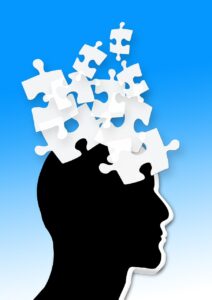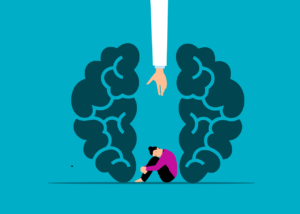Engaging in physical activity goes beyond improving our physical health; it also brings a multitude of advantages to our mental well-being. Let's explore the intricacies of how running positively impacts our cognitive functions.
When you go for a run, your body releases endorphins and serotonin—chemicals that can uplift your mood. This natural release not only contributes to better mental well-being but also enhances memory and learning abilities, supported by scientific research.

Taking your run outdoors adds extra mental perks.
Taking your run outdoors adds extra mental perks. Running in nature can alleviate feelings of loneliness, reduce stress, and provide relief for those dealing with depression and anxiety.
One of the primary outcomes of running is stress reduction. The post-run release of endocannabinoids acts as a natural stress-reliever, creating a sense of serenity and alleviating stress—an essential tool for navigating life's challenges.
Running also plays a role in mood modulation. While it doesn't cure depression immediately, regular running can be a valuable ally in managing symptoms. Scientific studies even suggest its equivalence to certain medications in alleviating symptoms of anxiety and depression.
The benefits extend to sleep and broader physical health. Just 50 minutes of running each week at a moderate pace can significantly lower the risk of heart disease. Running not only strengthens the heart but also builds muscles and promotes overall well-being.
The positive effects of running aren't confined to the physical; they extend to cognitive prowess. Engaging in cardiovascular exercises like running facilitates neurogenesis—the creation of new brain cells—promising improved cognitive performance.

Make running a routine
For those considering integrating running into their routine, here are some tips: aim for at least 30 minutes of movement three to five times a week, prioritize consistency over perfection, and consider running with a companion for accountability and companionship.
Patience is key during the initial weeks of adopting a running routine. It may take 4 to 8 weeks to feel comfortable, emphasizing the importance of self-compassion.
To avoid overexertion, start your run with a gentle warm-up walk, accompanied by stretching and strength training routines. Setting clear exercise goals, both in frequency and duration, can help solidify intentions, and exercise apps provide additional support for tracking progress.
"Running ads years to your life and life to your years"
Finally, the often-overlooked necessity of rest is emphasized. Taking breaks between runs is crucial to prevent strain and ensure both physical and mental well-being.
Any activity ensures holistic health
In conclusion, the narrative encourages diversity in physical activities. While running is beneficial, integrating alternative activities like biking prevents monotony and ensures holistic health. Running, in the grand tapestry of cognitive flourishing, emerges not just as a physical endeavor but as a woven thread intricately connected to mental well-being. The rhythmic footsteps echo not only through muscles but also through the corridors of the mind, crafting a narrative of vitality, resilience, and holistic flourishing.






